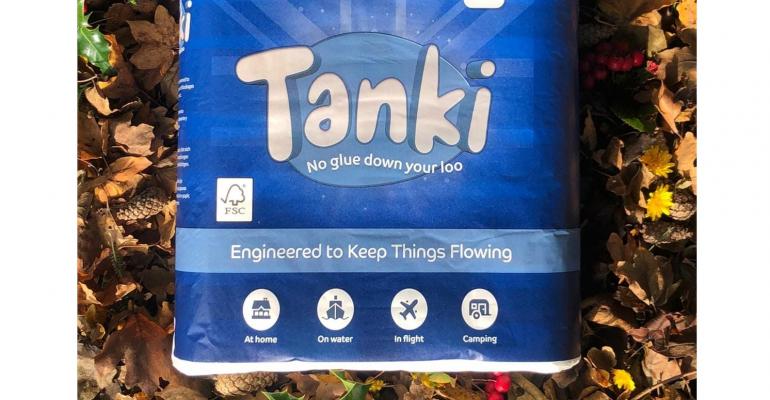Shrewsbury-based Tanki aims to break into the cruise sector with a sustainably sourced and produced paper that does not congeal to clog a ship's sewage treatment system or pollute the environment.
'It may come as a surprise that the humble loo roll contains a lot more than just two or three sheets of very thin, biodegradable paper. Typically, every roll of two- or three-ply toilet paper contains 2.7 grams of lamination adhesive and softening agents that bond the sheets together,' Tanki Director Matt O'Crowley said.
Glues contain nano-plastics
While these glues are water soluble, they contain nano-plastics and frequently contain polyvinyl acetates and silicon which cannot be broken down in the marine environment, according to Tanki. Another constituent is Bisphenol A, a carcinogen and endocrine blocker which is not permitted for maritime use.
'It is not currently practical to prohibit crews from flushing used paper down the toilet, in the same way that some countries and cities have done, but these glues and nano-plastics cannot be filtered out and treated effectively in a ship’s sewage treatment plant,' O'Crowley said. 'Adhesives are the main cause of toilet tissue clogging up pipes, forming a slow-moving sludge, leading to blocked pipework and drains and damage to treatment systems.'
Recognised by the Forest Stewardship Council.
Tanki 2-Ply uses virgin pulp, a by-product of timber grown for housing, from verified sustainable and actively managed sources. A patented binding system bonds the ply. Its supply chain and manufacturing facility is both BRC Grade A rated and recognised by the Forest Stewardship Council.
Compliant with MARPOL Annex IV and V, the paper is indistinguishable from high street brands, according to Tanki. Its composition allows the paper to completely disperse and disintegrate when submerged in water. There is no risk of pollution or chemical contamination if effluent is discharged overboard.
Under MARPOL, the discharge of sewage is prohibited within 12 nautical miles unless a vessel operates an approved treatment plant. Treated sewage can then be discharged three nautical miles from the nearest land.
Tanki 2-Ply, introduced to the maritime market in September, is already being supplied to countries that prohibit the flushing of toilet paper into the municipal sewage network as well as homesteads that use septic tanks.
Chandler support
'Since market launch, we have received substantial industry support,' O'Crowley said, singling our chandler Mersey Ship Stores, in particular.
'MSS gave us the confidence to bring the product to the maritime market and now stocks Tanki 2-Ply as part of its drive to eliminate plastics from ships’ chandlery.'
Copyright © 2024. All rights reserved. Seatrade, a trading name of Informa Markets (UK) Limited.
Add Seatrade Cruise News to your Google News feed.  |

